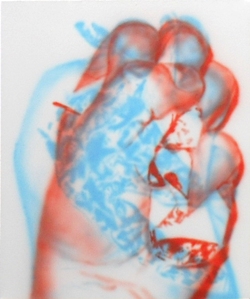 |
By Mariano Molina |
 |
generated by the eye tracker |
 |
By Mariano Molina |
**__Related stories:__***linkurl:Painting climate change;http://www.the-scientist.com/blog/display/57200/
[5th March 2010]*linkurl:The Michelangelo of forensics;http://www.the-scientist.com/blog/display/56115/
[23rd October 2009]*linkurl:A Nobel art form;http://www.the-scientist.com/news/display/53556/
[31st August 2007]


















